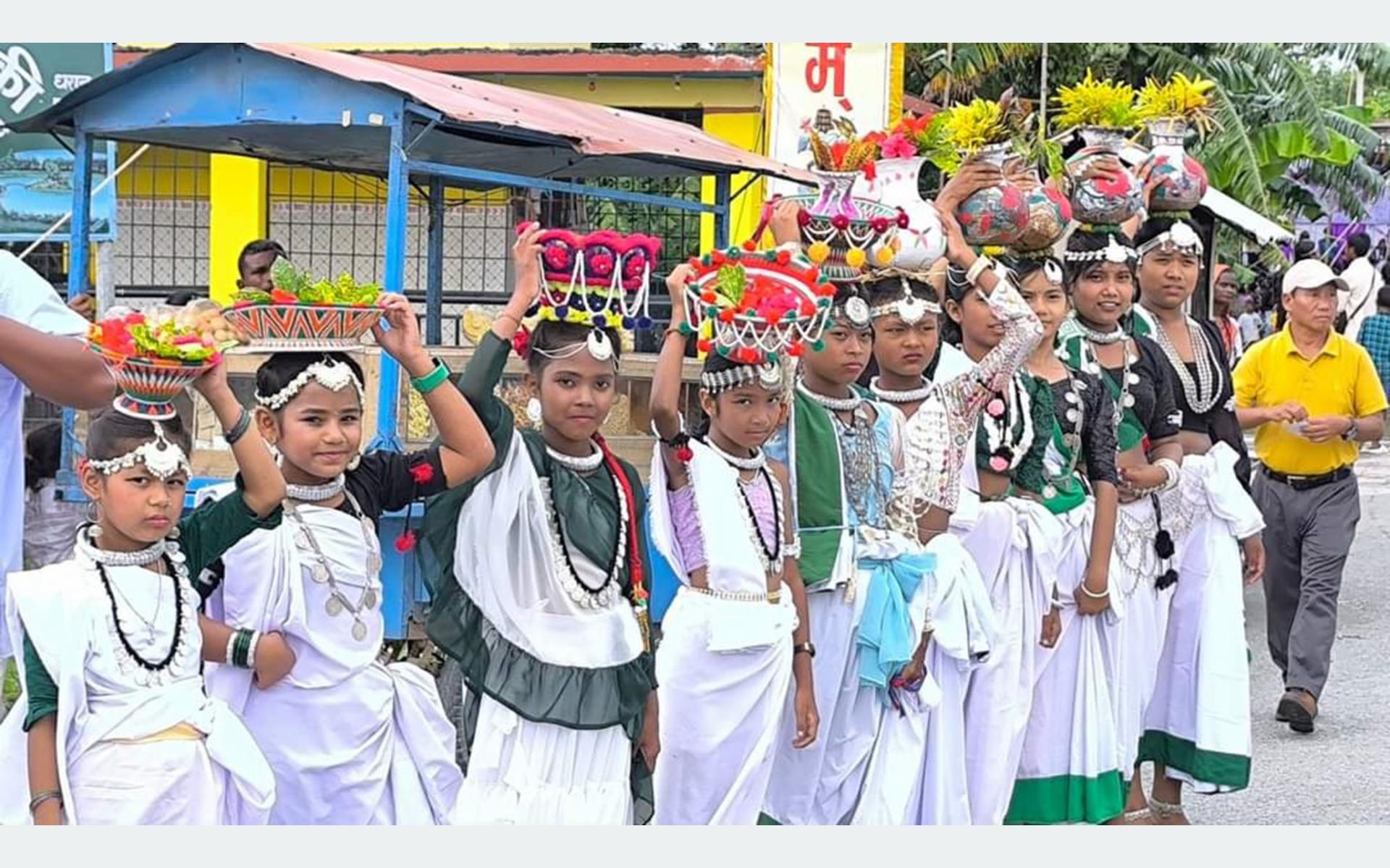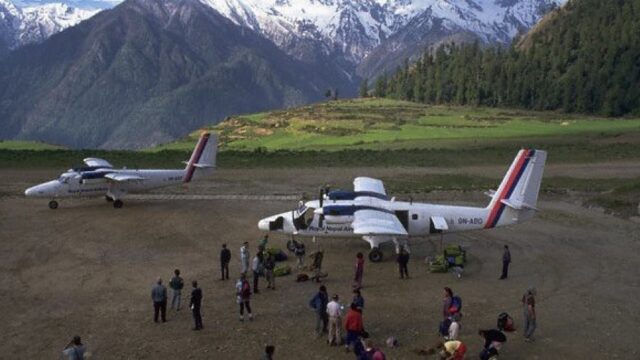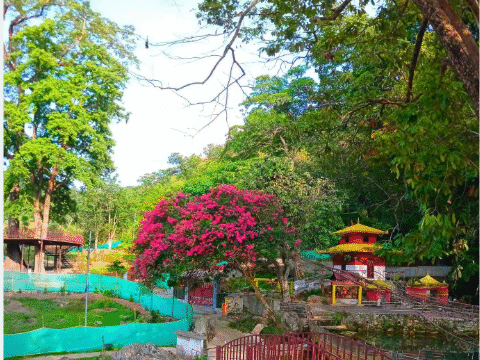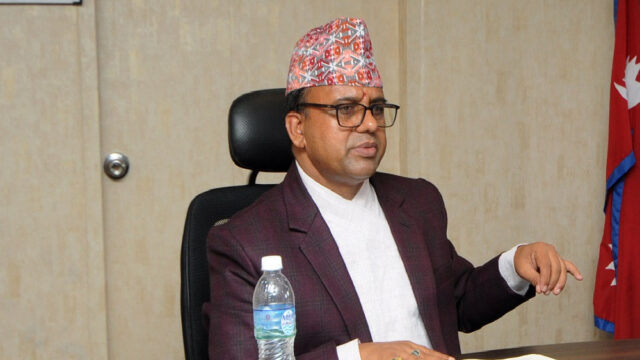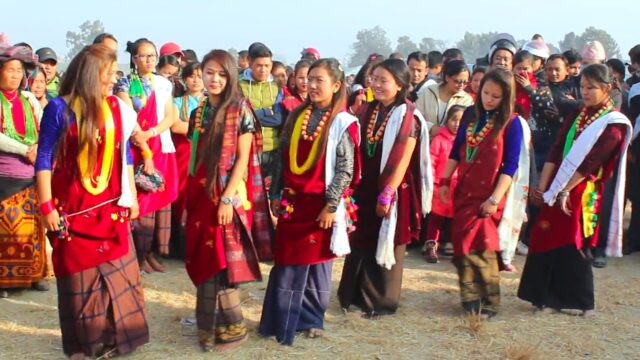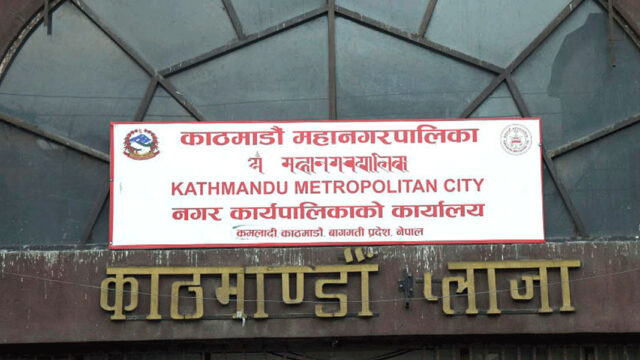Tharu women in Nawalparasi are celebrating the Jitiya festival with great enthusiasm today. This three-day festival, which is particularly significant for the Tharu community, involves observing a strict fast and performing various rituals to pray for the well-being and longevity of their children.
The Jitiya festival is celebrated annually from the seventh to the ninth day of the waning moon in the month of Ashwin. It is observed primarily in the central regions of Nepal, including Nawalpur and other districts in the Terai. During this festival, Tharu women listen to stories and hymns dedicated to Lord Jitvahan, who is revered for his protective powers. The festival is especially known for its focus on the happiness, peace, and long life of children.
On the second day of the festival, which falls on the eighth day of the lunar month, Tharu women celebrate by performing the traditional ‘Jhamta’ dance. Early in the morning, they bathe and collect bel leaves for worship. They then spend the day dancing and singing, adorned in new cultural attire. The festival is marked by vibrant celebrations, particularly in areas with a large Tharu population, such as Madhyabindu, Kawasoti, and Devchuli municipalities.
The Jitiya festival follows a specific sequence over its three days: the first day is known as ‘Laha Khaeke,’ the second day as ‘Upas,’ and the third day as ‘Paran.’ On the first day, women bathe in rivers, ponds, or lakes early in the morning and consume special food known as ‘Dar.’ On the second day, they observe a strict fast, abstaining even from water, and perform the Jhamta dance in their clean and pure attire.
In the evening of the second day, the women go to the river again, perform a ritual bath, and float leaves on the water. Afterward, they gather to listen to the ‘Jitvahan’ story, which is traditionally narrated by a male elder of the village. This story session is an integral part of the festival and can last for hours. Following the storytelling, the women break their fast with a meal known as ‘Farahar,’ consisting of curd, bananas, beaten rice, and fruits.
On the final day, the ninth day of the lunar month, the women conclude the festival by bathing in the river at dawn and performing rituals with black gram seeds. After these rituals, they eat a simple meal, but only after offering a portion to the fire as a sacred offering.
Jitiya is often compared to the Teej festival celebrated by Hindu women, but it holds a unique cultural and religious significance for the Tharu community. The festival is dedicated to the well-being and longevity of children and the overall happiness of the family, as highlighted by Ward Chairperson Man Bahadur Mahato of Madhyabindu Municipality-3. Mahato emphasized that Jitiya showcases the cultural role and importance of women in the Tharu community.
According to Jugat Ram Thanet, a Tharu community leader, married women observe the rigorous fast praying for the long life and good health of their husbands and children, while unmarried women fast in the hope of finding a suitable husband, akin to Lord Jitvahan. The fast lasts for 24 hours, during which the women do not even drink water.
This strict observance is believed to please the Sun God, who, in return, grants blessings of good health and longevity to the children and husbands of the fasting women. Thanet also noted that Jitiya provides an opportunity for married Tharu women to return to their maternal homes, where they can share their joys and sorrows with their families. The festival is seen as a time for reunion and social harmony, where families come together, share meals, and engage in heartfelt conversations.
Deputy Mayor Purnakala Chaudhary of Madhyabindu Municipality described Jitiya as a festival that enhances social cohesion and reflects Nepal’s cultural diversity. She added that although the exact origins of the festival are unknown, its significance has been deeply rooted in the Tharu community for generations. Women dressed in traditional Tharu attire celebrate Jitiya, making it not only a cultural festival but also a celebration of identity for Nepal and its people.
